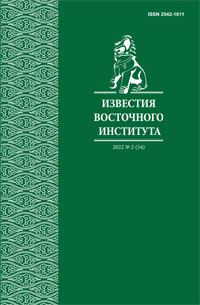Modern neuro/cognitive sciences and humanities: what can they give each other?
DOI:
https://doi.org/10.24866/2542-1611/2022-2/140-167Keywords:
social cultural neuroscience, humanitarian, integration, mind, complexityAbstract
This publication contains the seminar proceedings on the problems of integration of neuro/cognitive sciences and humanities, which took place on November 11, 2021 at Far Eastern Federal University. The keynote papers of the seminar addressed the current state of socio/cultural neuroscience and major achievements of the humanities related to the study of the mind and its connection with language. Particular attention was given to substantiation of the significance of the category of the human lifeworld to find the grounds for integration of these spheres of knowledge. Practical aspects of the impact of neurocognitive sciences achievements on social reality were addressed in the report about the relationship between neuroscience and criminal law.




